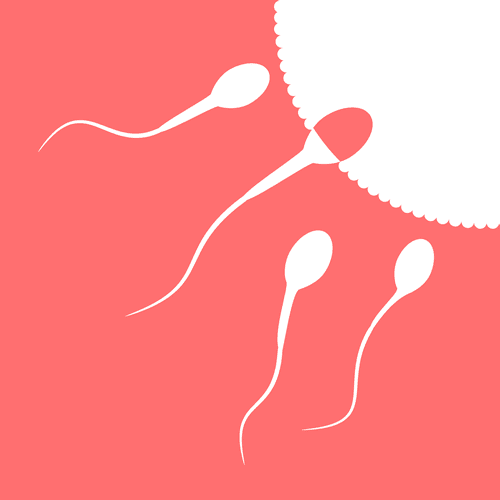In two out of three cases, there is likely to be a male-related subfertility cause, either alone or in combination with a female factor.
In many cases, conventional reproductive medicine practice tends to ignore the issue of male fertility and it is the female partner who seeks treatment. Most men have semen analysis, although in many cases if the semen is found to be suboptimal, these couples are automatically referred for IVF, rather than the man undergoing further investigations and treatment. Furthermore, men are usually presumed to be fertile if their semen parameters are normal. However, male infertility may be present even when the semen analysis is normal.
Other functional factors which contribute to male infertility include:
- Lowered or non-existent sperm production
- Sperm blocked from or imperfectly being released
- Sperm not functioning properly
Studies report that acupuncture treatment can improve ejaculatory dysfunction, erectile dysfunction, sperm motility, concentration, sperm vitality and total motile count. This is possibly due to the effect that acupuncture has in increasing testosterone levels.
Sperm take about 72 days to clear the production line, so an acupuncture treatment schedule of at least 3-4 months is preferable to ensure benefits are realized.
Semen parameters are not the only measure of male fertility. Delayed parenthood may contribute to low sperm count and higher rates of DNA damage. However, the ensuing lifestyle factors on both the male and female parts could also contribute to these findings, of which, acupuncture can be incorporated with positive results.
Weight and BMI
Paternal weight is also important in male fertility. A 2012 systematic review and meta-analysis of 21 studies concluded that being overweight or obese significantly increased the risk of azoospermia (no sperm) or oligozoospermia (low sperm concentration). The recommended BMI for optimum baby making is currently set between 19 – 24 kg/² for both males and females trying for pregnancy.
Exercise
Although there are mixed results regarding exercise and sperm count, one study showed that men who exercised for at least 15 hours per week had a 73% higher sperm concentration compared with men who exercised under 5 hours per week. The study also showed that men who spend more than 20 hours per wek week watching TV had 44% lower sperm counts compared with men who did not. In any case your general health will be better by being more active and maintaining a healthy weight. Creating offspring should not be the only motivation for exercise!
Alcohol
Consuming alcohol has been shown to affect sperm morphology and sperm production. This is exacerbated with increased intake. Binge drinking on the male part (more than 20 units/week) has shown to significantly increase the couple’s time to conception. There has also been a link with alcohol intake on both the male and female part with miscarriage and reduced IVF success.
Smoking
Smoking in males reduces fertilisation rates and success rates of IVF and ICSI, as studies have shown a link to poor semen parameters.
Drug Use
Recreational drug use is strongly associated with infertility in both males and females, and can contribute to as much as a 70% increase of risk factors.
Medications
Prescription and over the counter medication can also contribute to male infertility, so it is important to make a note of anything that you and your partner are taking and to be aware of which medications could potentially harm reproductive function.
Environment
Environmental factors such as air pollution and exposure to contaminants can affect male fertility. Increased temperatures can also alter sperm production and can include: sitting for long periods, hot baths, using a laptop placed on the lap and sauna use.
Mention any potential environmental predisposition which might be involved to your practitioner.
Occupation
Occupational factors have also been linked to reduced fertility so therefore it is important to disclose this information. Male occupations most strongly associated with subfertility include, welders, bakers, drivers (or others involving high scrotal temperature), radiotherapists, engine drivers, agricultural workers, chemists, laboratory workers and painters (due to solvent exposure).
Nutrition
Macronutrient intake and diet play a huge role in reproductive health. As an acupuncturist, it is important to work with a naturopath or dietician who can rule out any nutrient deficiencies leading to subfertility. Generally speaking, to ensure healthy sperm quality, men should:
- Eat a diet rich in vegies, fruits, grains, poultry and seafood
- Reduce intake of foods that have high amounts of carbohydrates and high sugar content, and also reduce intake of processed meats
- Replace full-fat fairy with low-fat dairy
Generally speaking, conventional medicine perceptions are most often guilty of relinquishing the task of conception and pregnancy to our female counterpart and quick to assume a dysfunction in the female rather than the male. There is much more at play for the paternal role in the synergistic bond of creation. Men so easily forget, as the woman bares the child and experiences the birth, that she is not just a vessel for breeding.



